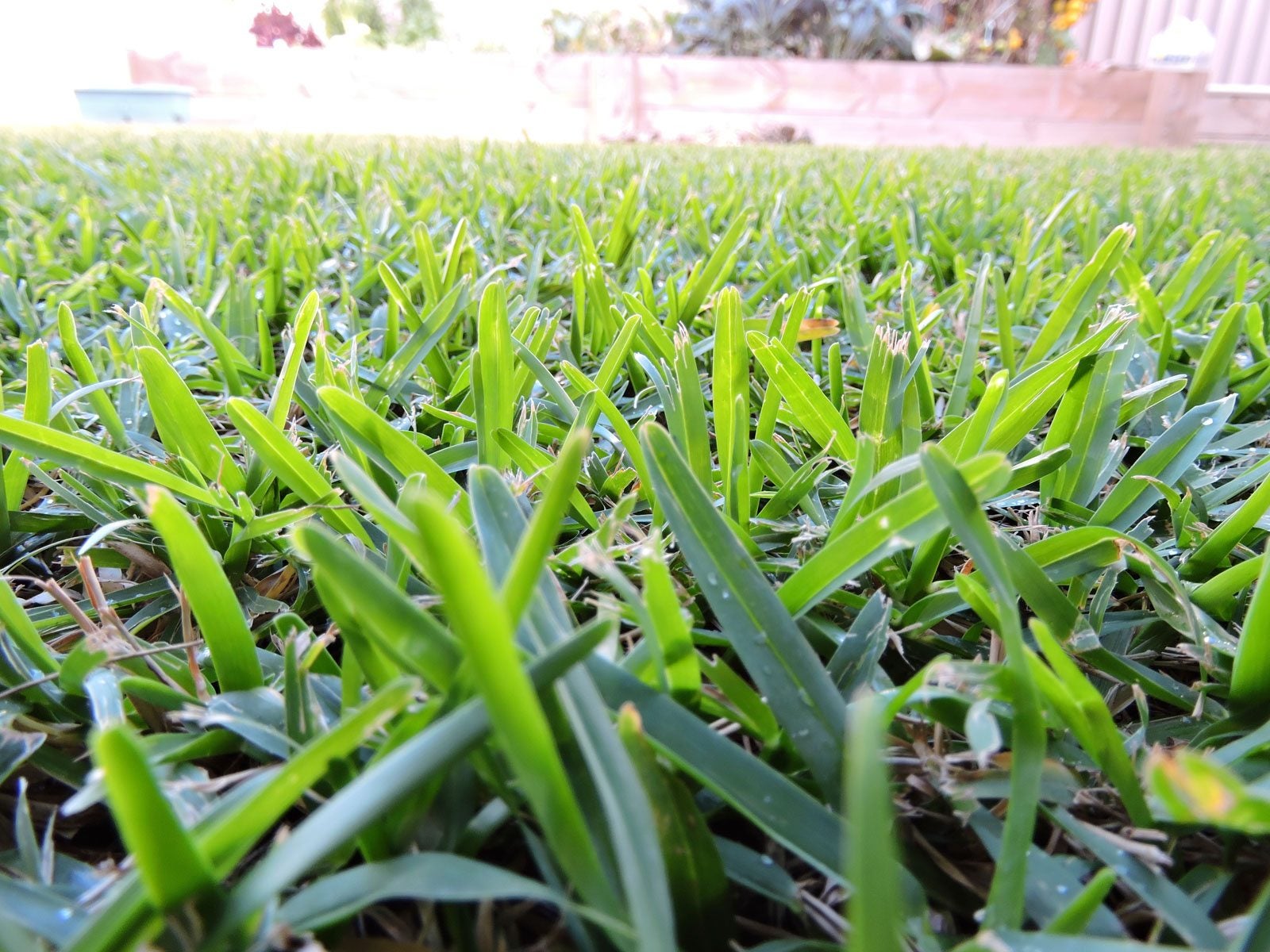Drought Tolerant Lawn Grass: Is There A Drought Tolerant Grass For Lawns


Water conservation is the responsibility of every citizen, not just in areas with drought or low moisture conditions. Turf lawns are one of the main water-sucking plants in the garden. That green expanse of lawn requires regular moisture, especially in the dry season. Drought resistant grass is an option, but there is no truly drought tolerant grass for lawns. You can make a selection that requires less water than other species, or you can choose to use a substitute for grass such as a ground cover, moss or even stepping stones.
Drought Tolerant Grass Varieties
Finding a drought resistant grass type is not as difficult as it used to be. Tighter water restrictions in moisture deficient municipalities have made using drought tolerant lawn grass or alternatives to turf lawns a priority. Fortunately, breeding and technology have come to our rescue and you can now install a lawn that requires less than one quarter of a traditional turf grasses water needs. Sod selection isn’t only dependent upon water needs. You also need to take into consideration your soil conditions, lighting, use and maintenance issues, and even the visual appearance you require. The local weather conditions are also a consideration. There are cool-season and warm-season grasses, with warm-season varieties more suited to the south and cool types used in the north. Kentucky bluegrass is a good choice in areas with hot summers and cold winters. It has all around tolerance and produces well even in poor soil with minimal moisture. Tall fescue is a very common wild grass that has been used as turf grass. It responds well to mowing, tolerates shade, develops a deep root system in prepared soil and can handle foot traffic. A University of California ranking shows the most drought tolerant grass for lawns is hybrid Bermuda grass and then in order:
- Zoysia grass
- Common Bermuda grass
- Seashore paspalum
- St. Augustine grass
- Kikuyu grass
- Tall and Red fescues
- Kentucky Bluegrass
- Ryegrass
- Several Bentgrass species
- Buffalo grass
Drought Tolerant Grass Alternatives
Even the most drought tolerant grass varieties will still need some water to keep it healthy or the grass will lose vigor and leave it open to weeds, insects and diseases. Drought tolerant grass alternatives are another way to reduce water consumption while still getting a beautiful green ground cover.
- Moss – In shady areas, moss is an effective ground cover. It will turn brown in extremely hot weather, but it persists in most cases and renews in fall or when rains return.
- Sedum – Succulents, such as low growing sedum, are perfect as ground cover and require little moisture. They are not at all tolerant of heavy foot traffic but the use of some pavers should help take care of that.
- Thyme – Thyme is a water miser that thrives in bright, dry, sunny conditions. Once it takes off, the plant will create a tight network of color. The best thing about thyme is the variety of colors and variegation, plus the added bonus of flowers.
Other excellent lawn alternatives include:
- Green Carpet Rupturewort
- Kidney Weed
- Blue Star Creeper
- Bellis
- Dymondia
- Sedge grass - Carex pansa, Carex glauca
- UC Verde
Making the Most of the Drought Tolerant Lawn Grass
Once you have made your choice, installation and care are two things that must be managed carefully in order to get the best result.
- Amend the planting area and cultivate deeply so roots can penetrate easily.
- Use a starter fertilizer formulated for turfgrass to get it off to a good start. You may choose to use seed or plugs, but in areas with water restrictions, the best bet is to get rolled out sod. This will be sheets of established grass that will take more quickly and root in half the time with no open areas that are prey to weed infestation. Fertilize the next spring with a high nitrogen grass food and keep the mower a setting up to help keep foliage cover over the sensitive root zone.
- Thatch and aerate when needed to establish good percolation and keep excess thatch from preventing new grass growth.
Sign up for the Gardening Know How newsletter today and receive a free copy of our e-book "How to Grow Delicious Tomatoes".

Bonnie Grant is a professional landscaper with a Certification in Urban Gardening. She has been gardening and writing for 15 years. A former professional chef, she has a passion for edible landscaping.